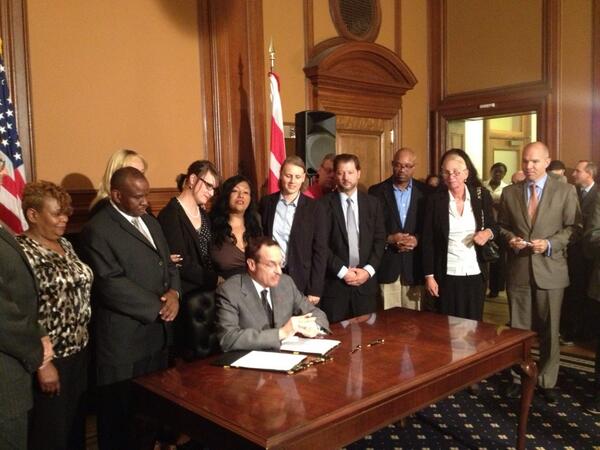The only class of felony sex offenders in Nevada not required to register in a national database are school employees and volunteers convicted of having sexual relations with their students who are younger than age 18.
"I think the penalty should be more substantial," Clark County Chief Deputy District Attorney Jim Sweetin said. "There should be at least lifetime registration, possibly lifetime supervision."
Those offenders won't always show up on the National Sex Offender Public Registry, because there is no mandatory registration for them required under Nevada law. The age of consent in Nevada is 16. However, the law prohibiting sexual conduct between school employees and students covers students under the age of 18.
Sweetin finds that lack of required registration odd.
From 1994 to 2005, 16 Nevada teachers and other school employees or volunteers were convicted of sexual offenses against students but were not required to register as sex offenders in the national registry.
Those numbers were reported in a 2011 study done for the local nonprofit advocacy group S.E.S.A.M.E., or Stop Educator Sexual Abuse, Misconduct and Exploitation.
Those 16 teachers were convicted under Nevada Revised Statutes 201.540 or 201.550, the laws prohibiting sexual conduct between a school employee and a student. But the laws, introduced in 1997, do not require those convicted to register as sex offenders.
"Our children spend the largest portion of their day awake at school. That should be the safest place for them," said Terri Miller, president of S.E.S.A.M.E.
Assembly Bill 265, proposed in the 2013 legislative session, sought to revise the statute to require school employees or volunteers convicted of sexual conduct with a student to register as sex offenders and have lifetime supervision.
The bill was supported by the Clark County School District, the Nevada District Attorneys Association and the Metropolitan Police Department, among others.
The Clark County public defenders office opposed the bill.
"The concern was that it would be a step away from how we typically looked at registration," Clark County public defender Steve Yeager said Thursday.
Yeager, a representative of government affairs for the public defender's office during the Legislature, said many of those convicted under the current law were in consensual relationships with students who were 16 or older.
"Traditionally, in these consensual relationships, laws have said that we won't mandate registration," Yeager said.
The bill never made it to a hearing for a vote in the Legislature. According to Assembly Judiciary Committee Chairman Jason Frierson, D-Las Vegas, there was not enough time for a hearing on the bill.
But the law as it stands is "too narrow in scope," Miller said. "We need to broaden the law or simply raise the age of consent."
In 2007, the Nevada Legislature approved the Adam Walsh Child Protection and Safety Act, a federal statute passed in 2006 to enhance the punishments of sex offenders.
The Sex Offender Registration and Notification Act is commonly called SORNA. The first section sets stronger guidelines on sex offenses and the punishments that should accompany them.
Since the act was signed into law, the SORNA guidelines have been "substantially implemented" in 17 states, according to the law's federal website.
A SORNA implementation review of Nevada, done in 2011 by the U.S. Department of Justice's Office of Sex Offender Sentencing, Monitoring, Apprehending, Registering and Tracking, requires any sexual conduct between an employee and student to fall under Tier II sex offender registration requirements. Those convicted under that law would have to register as a sex offender for a minimum 25 years.
Registration requires the person to enter information about their conviction in the national sex offender database. Sweetin said supervision requires a person to check in regularly with a probation officer. If a registered offender moves, they must update their address within 48 hours.
The reasoning behind registration and supervision is to identify those offenders "who are problematic with the chance of possibly re-offending," according to Sweetin.
"When a teacher offends against a child, I think that's much more substantial than someone off the street committing the same act," Sweetin said. "My preference would be to protect the community, to put up all of those roadblocks to re-offending that we possibly can."
Without those roadblocks, offenders could find themselves working with children shortly after their conviction.
"If they move from state to state, there's no real structure set up that's going to require those that they come in contact with to know their history," Sweetin said. "If you have someone who has to register, then you take care of that problem."
In many cases, because of issues involving the age of consent in Nevada, uncooperative witnesses, or the victim claiming to be in love with the teacher, the sexual conduct charge is the only tool prosecutors have in their pocket, Sweetin said.
"The statute gives us the ability to go after them, even if (the victims are) 16 or 17," Sweetin said.
By Colton Lochhead, clochhead@reviewjournal.com, 702-383-4638, Follow @ColtonLochhead on Twitter
Source: The Las Vegas Review-Journal
